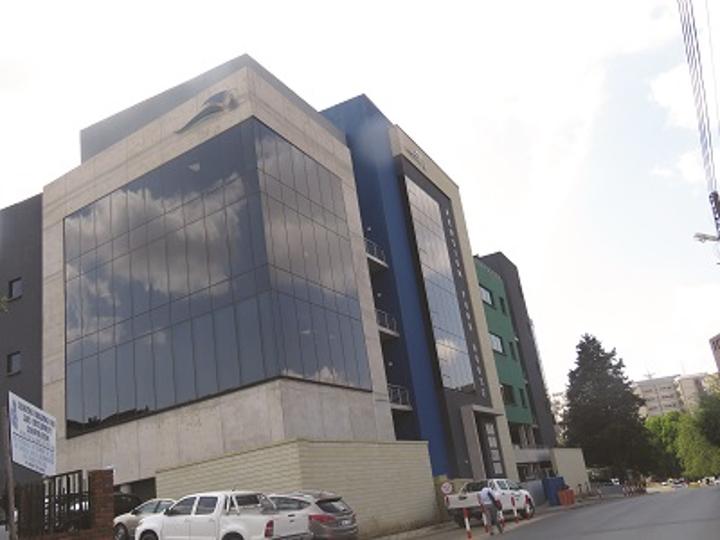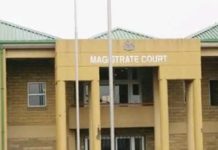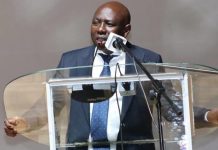Africa-Press – Lesotho. The world has been experiencing a common problem in recent years “the shrinking economy”; and unfortunately pensioners are the most vulnerable to this
situation. In 2008, the Government of Lesotho enacted “Public officers’ Defined Contribution Pension Fund Act No 8 of 2008, which came as a result of government’s decision
to change from defined benefit (unfunded) to defined contribution (funded). The main reason for this shift was to protect those in government employment because the unfunded pension system created a
huge liability for governments such that it became unsustainable. This meant in case the state converted bankrupt, pensioners would be the first to go hungry.
It is now over a decade since the establishment of the Fund; and its core business is to collect money from the government – 5% of the pensionable salary from the
employee, and the employer contributes the same amount. These monies are invested so that the employee will get the improved benefit at exit. Pension fund’s mission statement is to provide benefits to their members and their
beneficiaries in a timely, accurate and efficient manner that will sustain their livelihoods. The Public officers’ Defined Contribution Pension Fund Communications Officer Matshona Libalele explained that the government of
Lesotho, since the colonial rule in 1964 has been running the pension scheme through a pension proclamation and it was in the form of a defined benefit.
He said the government of Lesotho took the initiative to form the pension fund because it was faced with the situation where the economic activities were
declining especially the Southern African Customs Union (SACU) revenues and other economic benefits that have alarmingly been shrinking. “Hence it was necessary to form the fund as it gives both the employer and the
employee an opportunity to put money aside and get it invested so that the shrinking government coffers would not come at a huge cost to future pensioners,” he said.
Under the Public Officers’ Defined Contribution Pension Fund, a member’s contribution in terms of the act shall be deducted by his or her employer from his or her salary or wages and shall together with the employer’s
contribution be paid into the fund’s bank account as a monthly installment. Libalele further said the employer will then have to confirm that the contributions are
paid to the fund’s bank account on the first seven working days of the calendar month. He added that the contributions will then be recorded in the fund with the names
of the employee and together with the investment returns earned will be paid upon leaving or retirement. He noted that the investment office within the
institution then looks into the best investment opportunities from different registered entities either being in Lesotho or South Africa, where then the
funds are invested for better returns. He continued to say that the prescribed retirement ages apply differently towards different services, that is, for discipline service, the retirement age starts
at 55, 60 for local government and public service employees. While for teaching services, the retirement age is 65 years and a person may retire within 10 years from their prescribed
retirement age. He said for an early retirement, one has to hand-out a 6 months’ notice to allow an employer adequate time for file audit and to ensure that
everything is in order; and once the employer is satisfied, they then sent all the documents to the Pension Fund which will begin the payment process.
It is also important to note that the payment process may differ depending on how one exits the job contract. There are four ways in which to exit the government
employ: retirement, resignation, dismissal and death. All these exits undergo different routes of payment. Death benefit is all the money under the name of
an officer including 1 x annual salary and it is paid to all the dependents and beneficiaries of the deceased officer. In case of dismissal the officer only
gets his/her own contribution with its investment returns, while the resigned officer gets both his/her contribution together with the one of the employer
and returns thereof. Those who go on retirement get 25% of their fund credit as a lump sum and the remaining 75% secure the monthly annuity which one has a choice to get from the
Fund or the Private registered Insurer. He also emphasized that it takes 8 weeks for Pension Fund to release retirement package to beneficiaries and 6 weeks for resignations and dismissals.
He said in cases where an employee dies, family members will receive full benefits on behalf of the deceased person’s annual salary as at date of death.
He said the death benefits will then be paid to the dependents and nominees as shown in the deceased’s nomination of beneficiaries and there are forms that need to be
filled regularly to ensure that the benefit is paid to the right person. Libalele said for people who resigned or are retrenched for any reason before they reach
the prescribed retirement age, such employees will be entitled to a cash lump sum equal to the fund credit but excluding any past service liability benefit.
Any one exiting the government employment having any form of debt to the employer; his or her benefits are deducted to settle the debt. Libalele informed that the purpose of the investment committee is to provide an
oversight function on behalf of the board over investment matters relating to the fund. The institution also works together with the Central bank of Lesotho
(CBL) through bonds and other liquidity facilities that can be purchased by the
fund. He added that after every three months, the investment consultant submit reports to the investment committee which subsequently reports to the board of trustees.
He also clarified that the government takes care of all the expenses incurred in all the processes This Fund is managed by 14 representatives of the board, being five from the
government, and they are appointed by virtue of their positions in their respective ministries, accountant general, director teaching service department, director R&B from ministry of public service, one senior
officer from disciplined services and PS Ministry of Finance who is also a chairperson. There are also four members representing the employees and one member representing pensioners and lastly four independent trustees.
For More News And Analysis About Lesotho Follow Africa-Press






